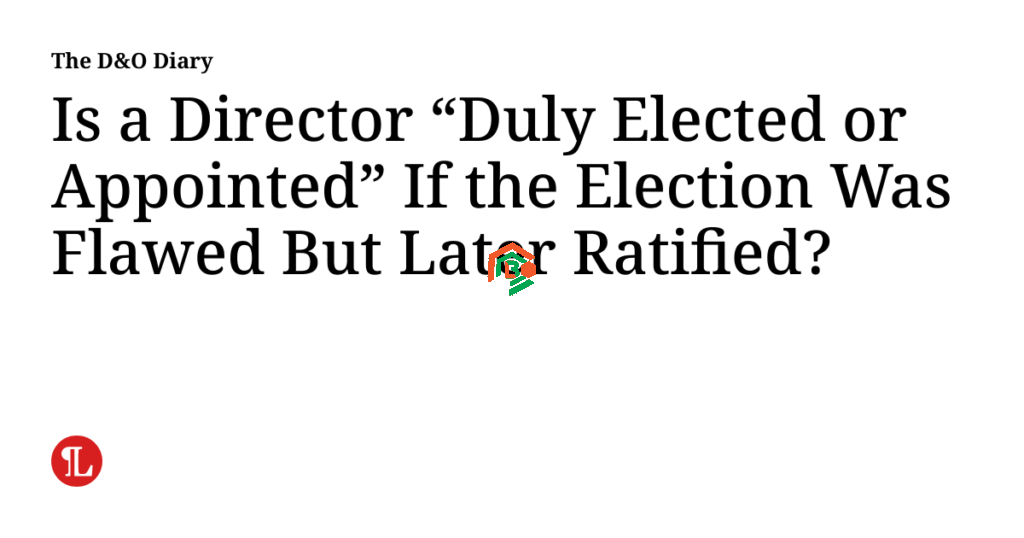In the United States, the phrase “duly elected” pops up a lot in politics, especially during elections. But what does it really mean? This guide breaks it down into simple terms. Whether you’re a student, a voter, or just curious, we’ll help you understand how elections work and why being “duly elected” matters.
What Does “Duly Elected” Mean?
The term “duly elected” means that someone has been chosen for a public office following all the proper legal steps and procedures. This includes everything from being on the ballot to receiving the most valid votes in an election, and finally being certified as the official winner. The phrase confirms that no shortcuts or illegal actions were taken to win.
For someone to be duly elected, they must follow election laws, meet eligibility criteria, and gain the most votes—whether it’s in a local city council race or a U.S. presidential election. It ensures legitimacy, public trust, and democratic values. A person who is duly elected holds power not just because they won votes, but because they won them fairly and under recognized laws.
Why Is Being Duly Elected So Important?
Being duly elected gives someone the legal and moral right to lead, govern, or make decisions. It’s not just about getting votes—it’s about gaining authority through a process that people trust. In democratic systems like the U.S., the integrity of elections is crucial. If people stop believing that their leaders are duly elected, the whole system begins to weaken.
It ensures accountability. When someone is duly elected, they answer to the voters. They are held responsible through future elections, debates, and public pressure. If someone is not duly elected—if they take power without following the rules—it’s not democracy. It could be corruption or even tyranny. This is why Americans care deeply about fair and transparent elections.
How Elections Work in the United States
The U.S. has one of the most complex election systems in the world. Elections happen at federal, state, and local levels. Every citizen who meets certain conditions can vote, and they help decide everything—from who becomes president to who serves on the school board. But how does the process actually work?

Before an election, candidates campaign to share their ideas and convince voters. Then comes voting day, where citizens cast their ballots. The votes are counted and certified to ensure accuracy. After this, the winner is officially declared duly elected.
Who Can Vote?
In the U.S., any citizen who is at least 18 years old can vote, as long as they’re not disqualified by state laws (such as certain felony convictions). Voter registration is required in most states. Recently, some states have made it easier to register online or on the same day as the election. Young voters, especially those turning 18 before Election Day, are encouraged to participate early.
What Is a Ballot?
A ballot is the paper or digital form that voters use to make their choices. It lists the names of the candidates and any important questions or propositions. Ballots are kept secret so no one feels pressured or threatened about how they vote. There are also absentee ballots and mail-in ballots, which allow people to vote without going to a polling place.
What Is an Electoral College?
In presidential elections, the U.S. uses the Electoral College system. Instead of choosing the president directly, voters in each state select a group of “electors” who promise to vote for a certain candidate. Each state has a different number of electors, based on its population. A candidate needs 270 electoral votes to be declared duly elected president.
While some people criticize the Electoral College for being outdated, it’s still the law. It’s possible for a candidate to win the popular vote (most individual votes nationwide) but lose the electoral vote—and not be duly elected president. That’s why understanding how this system works is so important.
What Makes an Election Fair?
A fair election is one where everyone who is eligible can vote, every vote is counted correctly, and no one cheats or tampers with the results. The key elements of a fair election include:
- Transparency: People can observe the process and raise concerns.
- Security: Ballots are protected, and vote-counting is safe from hacking.
- Equal Access: Everyone has a chance to vote, no matter their race, gender, or income.
- Verification: Results can be checked and confirmed through audits or recounts.
When these rules are followed and enforced, a candidate who wins can rightly be called duly elected. If not, elections might be contested or even declared invalid.
What Happens After Someone Is Elected?
After someone is duly elected, there’s usually a waiting period before they take office. During this time, the votes are certified by officials, and the candidate prepares to take on their new role. For example, the U.S. president is elected in November but doesn’t start until January 20.
In the meantime, the newly elected official may:
- Attend training or briefings
- Appoint staff or cabinet members
- Start planning their agenda or policy goals
Once the official swears an oath, they officially begin their job. From this moment, they have the power and responsibility granted to them by the voters. Their decisions affect laws, budgets, education, healthcare, and many other areas of life.
Duly Elected vs. Appointed – What’s the Difference?
In government, not all officials are duly elected. Some are appointed, which means they are chosen by another leader instead of by voters. Understanding this difference helps explain how power is distributed in the U.S.

Example of Elected:
A mayor is usually duly elected by the people of a city. Citizens go to the polls, choose a candidate, and the winner takes office. This person is responsible to the voters and can be replaced in the next election.
Example of Appointed:
A judge in a state court may be appointed by the governor. This means the governor selects the person based on qualifications, experience, or political preference. Appointed officials are usually not chosen by public vote, though some must be confirmed by lawmakers.
Can Elections Be Challenged?
Yes, but only under legal grounds. If someone believes that an election wasn’t fair—maybe due to fraud, technical issues, or illegal behavior—they can file a legal challenge. This process goes through the courts. Judges look at evidence and decide whether the election result should stand.
But challenges must be based on real proof. If courts find no evidence of fraud or misconduct, the original result stands, and the winner remains duly elected.
What If No One Is Duly Elected?
Sometimes, elections don’t result in a clear winner. Maybe there’s a tie, a recount that changes the outcome, or disqualification of a candidate. In such rare cases, the government may use backup procedures like:
- Runoff elections
- Legislative votes
- Temporary appointments
If no one is duly elected, the position stays open or is temporarily filled until a fair and legal election can be held. This ensures the office is never taken by force or fraud.
The Bottom Line
The term “duly elected” is more than just a phrase. It represents trust, legality, and the core of democracy. When someone is duly elected, it means they earned their role through a system that respects fairness, law, and the voice of the people.
From voting to counting ballots to swearing in, every step matters. It’s how Americans keep their government in the hands of the people. Understanding what it means to be duly elected helps all of us—young and old—protect and participate in democracy.


